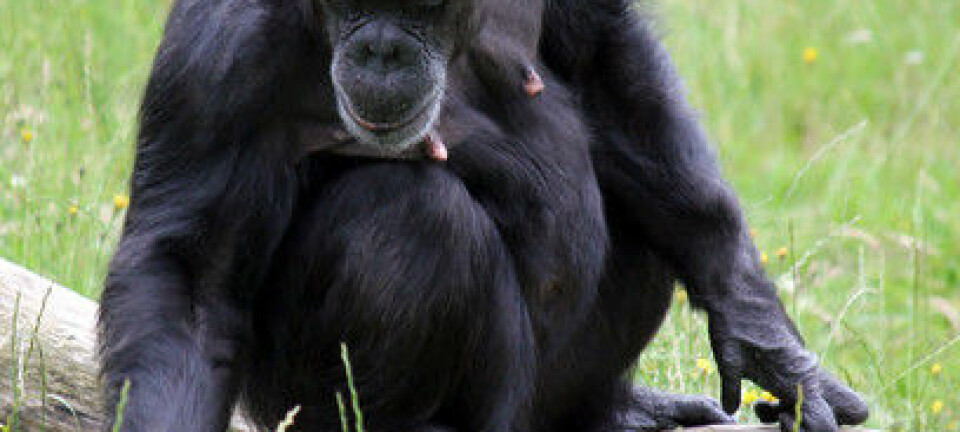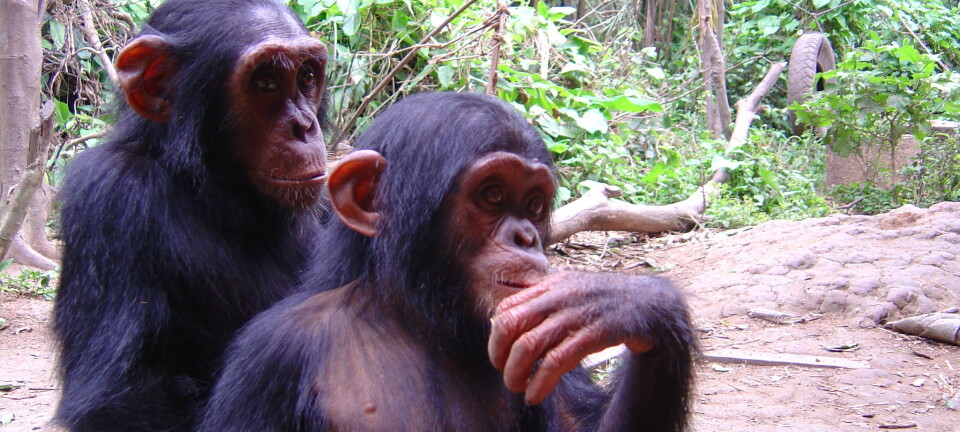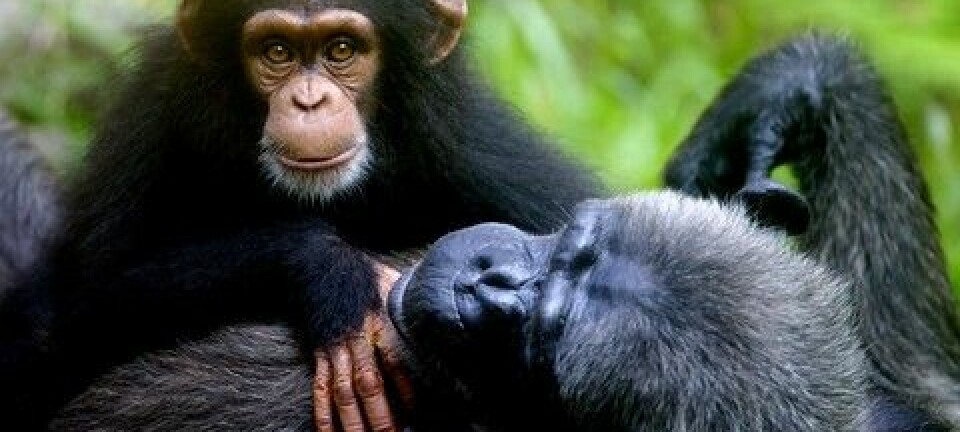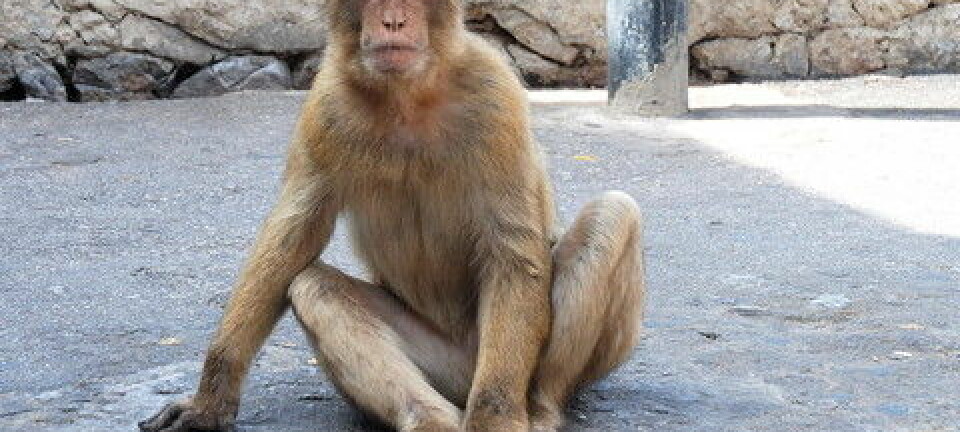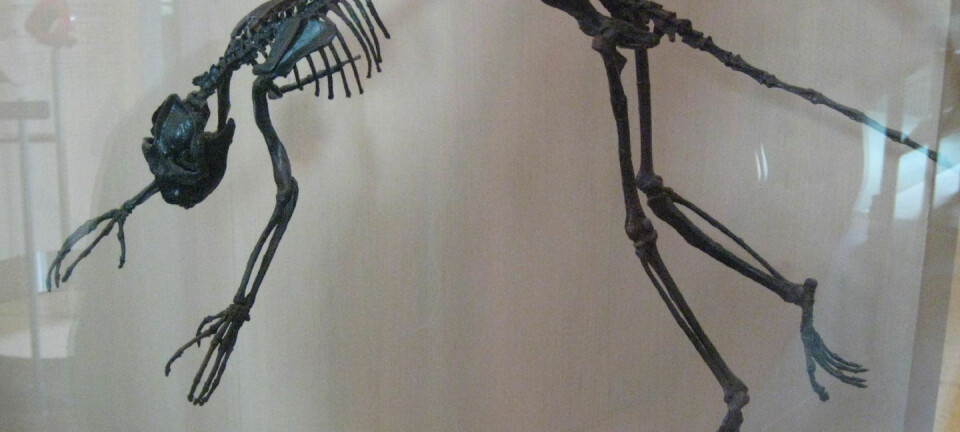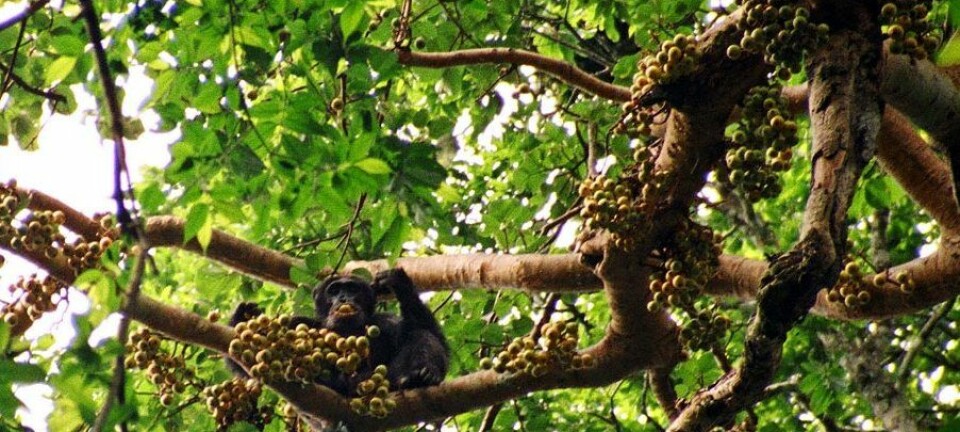
Apes can relive their past through ’mental time travel’
Humans are no longer the only primate capable of recalling their own experiences from the past, claim scientists.
We have all at some point in our lives experienced how a certain sound, a specific smell or taste can make distant events from our past – good as bad – spring back to life.
Scientists refer to these flashbacks as ‘autobiographical memory’ or with a more popular term: ‘mental time travel’. It describes the ability to recall our own experiences from our past, sometimes decades back in time.
Up until now we have believed this skill a unique ability inherent to our evolved species. But a recent study challenges this conception, claiming evidence of autobiographical memory in both chimpanzees and orangutans.
”We’ve shown that chimpanzees and orangutans are capable of remembering a task of finding a hidden tool and using it correctly – even though they had only performed the task four times previously and this happened three years ago,” says lead author Gema Martin-Ordas, a postdoc from the School of Business and Social Sciences at Aarhus University.
Clever apes never forgot how to get to the food
We’ve shown that chimpanzees and orangutans are capable of remembering a task of finding a hidden tool and using it correctly – even though they had only performed the task four times previously and this happened three years ago.
Back in 2009, Martin-Ordas showed eight chimpanzees and four orangutans how to reach a snack using a long stick. She also demonstrated how another stick was just too short to collect the edible prize.
Later, both sticks were hidden from the apes and their task was now to locate the correct stick and use it to retrieve the food. The researcher repeated this exercise for a total of four times and then she stopped. For the next three years the apes would undergo similar tests and trials but never in the exact same way.
Until a day in 2012 when the monkeys were put in the exact same room as three years earlier and ‘asked’ to solve the exact same task.
Incredibly, all but one of the apes were able to successfully retrieve the food whereas none in a control group of eight apes knew what to do. It would seem the chimpanzees and orangutans could remember the episode three years ago and use this memory to find the long stick and use it to claim the reward.
”This implies that apes and humans have much more in common than previously known,” says co-author, Professor Dorthe Berntsen of the Department of Psychology and Behavioural Sciences at Aarhus University.
Memory brings us closer to our distant relatives
To investigate if the apes were able to remember single events, the researchers performed another experiment. Again, the apes had to watch the researchers introduce them to a tool (this time a ball) and then find it again after the researchers had hidden it. Two weeks later, the apes were brought back to the test room and upon seeing the same researchers waiting there in an identical test setup they instantly knew how to find the hidden ball and where to look for it.
The complex character of the tests and the fact that the apes were able to find the tools again so readily – even after long durations of time – implies that chimps’ and orangutans’ ability to remember past events is very alike to that of humans’ autobiographical memory, say the researchers.
”We know that humans often get spontaneous autobiographical memories when they’re exposed to certain cues – just like the apes in the study. This implies that at least the spontaneous side of human memory is very old, evolutionarily speaking,” says Berntsen.
The study is published in the journal Current Biology.
----------------------
Read the Danish version of this article at videnskab.dk
Translated by: Kristian Secher
